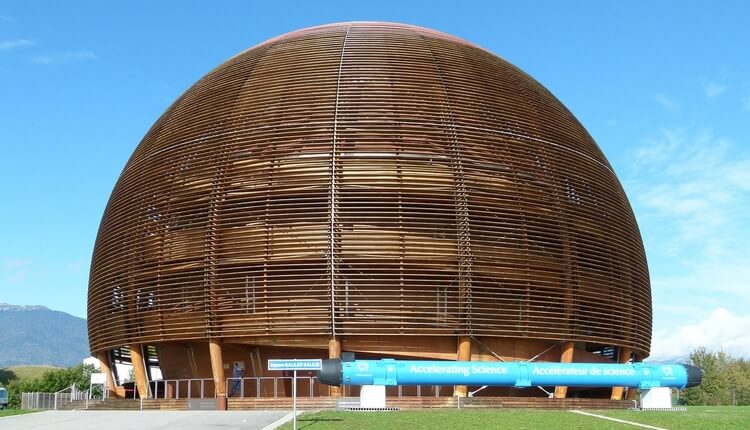Is Europe the New International Research Hub?

International research experience is highly sought after, making it extremely competitive. It can be difficult for young researchers to find such a position. Gaining international research experience will give you an advantage when you apply for a position back home. You will have gained multicultural experience, learnt new skills, and have a broader network. Historically, the United States was the preferred research destination for researchers. However, working in science in Europe is becoming more popular.
How is Europe Encouraging Scientists Across Borders?
Europe is an attractive destination for researchers. There are many reasons:
World class universities:
Europe has some of the world’s best universities and facilities. In 2018, 25 % of peer-reviewed science and engineering papers were published by researchers from the European Union (EU). They were followed by China, who published 21 % and the U.S. who published 17 %. This comes with responsibility though, as you will be under pressure to get results and publish.
Funding:
The provision of funding for research is a good starting point. The EU member states have increased their budget for research and innovation. Moreover, European Research Council (ERC) grants can be applied for by researchers of any nationality. The only provision is that most of the research must be carried out in an EU institution. Some of the best universities are in cities with expensive living costs, such as Zurich. This could be problematic for young scientists. However, you can find good research institutes in more affordable towns such as Leuven, Germany.
Contracts:
Working contracts are also available for PhD students. Bernardo Franklin from the University of Bonn, Germany, says that PhD students in Germany have working contracts. They even get additional benefits such as pension and working regulations that protect the supervisor and student.
Academic freedom:
European research institutes tend to allow researchers the freedom they need to carry out their research compared to other countries such as Saudi Arabia. In fact, they are pushing Parliament to promote this at the national level.
Open Access:
The drive to make research freely available is being boosted by a consortium of research agencies and funders from twelve European countries, and they are calling it Plan S. The European Commission and the European Research Council support this group of funders. They intend to fund your research that is published either in open-access journals or made immediately and freely available through an open access repository. This further confirms that Europe is making science a priority for everyone.
Infrastructure:
The research infrastructure in EU makes it an efficient system. For example, reagents that may take months to arrive in another country are delivered within a week in Europe.
Cultural experiences:
Besides the above academic reasons, Europe offers a diverse cultural experience. With so many countries in close proximity, it will be easy to travel, and you are bound to experience different food and cultures. If you are lucky enough to find a position in an EU country, take a language course before you go. This will make life easier for you.
Why is the U.S. No Longer Attractive?
Preference for gaining international research experience in the United States is on the decrease. This is mostly due to the travel restrictions. It has become increasingly difficult to get a visa for the Unites States.
Another hurdle for researchers in the U.S. is the decrease in funding available for science. Trump’s administration has closed many National Science Foundation offices in various countries, namely Beijing, Brussels and Tokyo. In addition, Trump has stopped funding NASA’s Carbon Monitoring System as well as withdrawn the U.S. from the Paris Climate Accords. There are various rumors as to the reasons for these decisions. These range from budget cuts to restructuring to create a more effective team.
“One’s destination is never a place, but a new way of seeing things” – Henry Miller
Benefits of International Research Experience
Conducting research in another country has its own benefits. You will gain valuable cultural and scientific experiences during a research post in another country. The benefits are many and include:
- Learning new scientific techniques: You may learn a better scientific technique that is not common in your country.
- Using state-of-the-art equipment: Nations like Europe are well funded and focussed on research. Therefore, they are likely to have the latest equipment. This will give you exposure to research with new equipment and ideas.
- Working in a multi-cultural environment: With many researchers from around the world heading to Europe to do research, you are likely to interact with many different cultures.
- Networking: In some cases, you may get the opportunity of meeting the authors you are referring or citing. An international network and the opportunities of meeting the authors of papers you read will be beneficial for your career.
- Collaboration opportunities: Meeting and working with people from around the globe will also open collaboration prospects for your future research career. Rigorous research needs good collaboration programs and Europe is good at this. In fact, the European Commission has a new vision which they are calling “Open Innovation, Open Science, Open to the World”. The aim is to create an association that will develop scientific collaborations with countries outside Europe. It even aims to encourage outside countries to compete in research funding programs.
- Seeing things from a different perspective: This speaks for itself. Hearing and seeing how others approach problem-solving can only enrich the way you think.
These skills are a huge asset to research labs looking for talent.
Is Europe Going to be a Hub for Researchers?
After considering all the above, Europe really is an attractive option for international research. It appears to be driven and supported at a government level. They have identified science and innovation as an important role in the future of the EU. To make this possible, they have put their heads together and thought about every possible resource that can promote science. They are making this happen, not only with funding, but also by encouraging free access to publications and ensuring researchers have what they need in order to make progress. The research that will emerge from this is going to solve world problems.
Would you consider doing a postdoc or postgraduate degree in Europe? Let us know in the comments section below!
You can also visit our Q&A forum for frequently asked questions related to different aspects of research writing and publishing answered by our team that comprises subject-matter experts, eminent researchers, and publication experts.









